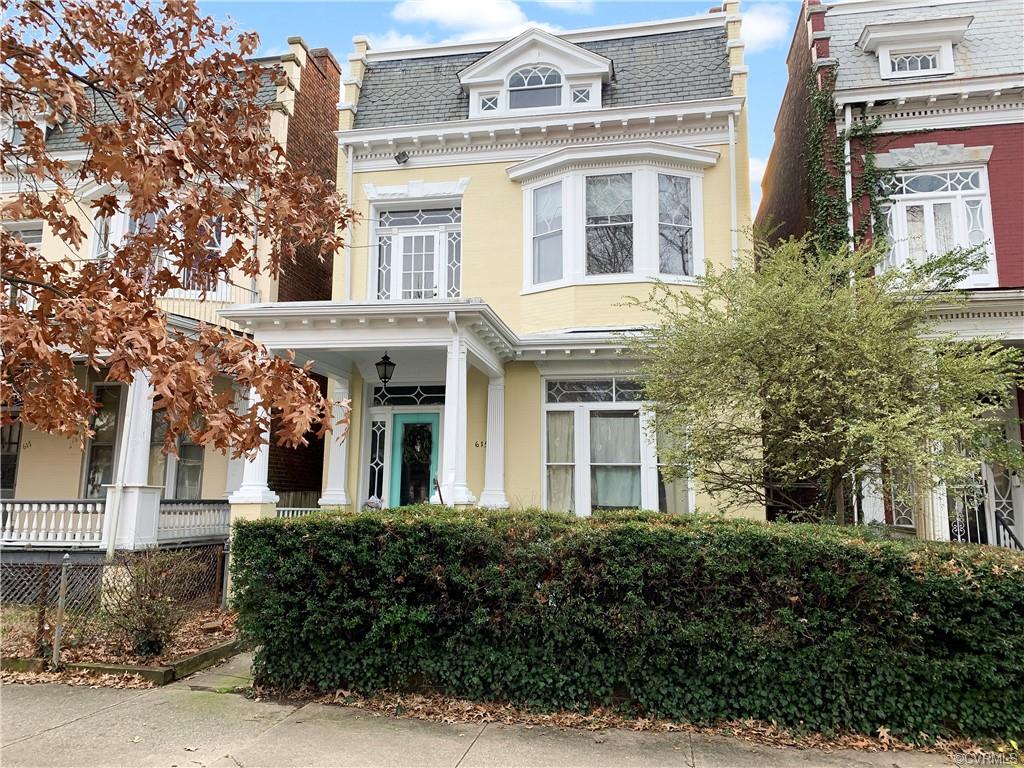Is an Old Home the Choice for You?
As you consider your next home, do you imagine a ca. 1910 Victorian in the Fan? Or perhaps a foursquare on Semmes Ave? Or an historic Church Hill Italianate? It’s easy to understand the appeal older homes hold with so many buyers–in addition to their character, many are part of unique neighborhoods with their own charm and history.
Old homes have unique architectural features that give them character and charm. From hand-carved woodwork to original hardwood floors, older homes often have details that cannot be replicated in newer homes.
Because of how most cities grow, old homes are frequently located in the thick of it all. Rather than having to expand out into the suburbs, you can settle in established areas. When you buy an older home, you’re not just buying the house—you’re investing in your surroundings too.
Potential expenses and challenges
Buying an old home is a significant investment, and many buyers are often faced with the decision of whether to purchase a new or an older home. You’re generally going to pay less for an older home than a modern home. While that’s largely been the case for a while, the rising cost of materials and labor in recent years have made the cost gap between new construction and old homes even greater.
You’ll likely need to put more money into an older home after moving in than you would a new build, but a big chunk of that money will go into the long-term value of your home. The average ROI on home improvement projects is around 70 percent and can be even higher if you’re able to complete some of the labor yourself.
Be on the lookout for these issues
The adage of “they don’t make them like they used to” is a perfect way to explain the value of owning an older home – these homes have already been standing for sometimes over 100 years, and it’s due to extreme attention to detail, build quality, and materials that in some cases don’t even exist any longer. That said, no home is perfect, and older homes come with their own special species of “gremlins” that you need to be on the lookout for.
When looking at older homes, pay close attention to the following:
- Maintenance and Repair: Older homes often require more maintenance and repairs than newer homes. Electrical and plumbing systems may need to be updated, and roofs, windows, and other components may need to be replaced.
- Energy Efficiency: Older homes may not be as energy-efficient as newer homes, which can lead to higher energy bills. This can also make it more difficult to maintain a comfortable temperature in the home.
- Outdated Features: While older homes may have unique architectural features, they may also have outdated features such as kitchens, bathrooms, and appliances. Upgrading these features can be costly and time-consuming. This of course comes with the reward of having it just the way you want it in the end.
- Building Codes: Older homes may not meet current building codes, which can be a safety concern. It may be necessary to make significant upgrades to bring the home up to code. However, while many beautiful features of the home may not meet current standards, many features can be “grandfathered”, meaning that as long as you leave them be, they will pass inspections!
Note: if the home is in a historic district (or has a historic designation) any repairs or modifications you make (e.g., window replacement) will need to be checked against historic preservation guidelines. If you’re unsure of a home’s historic designation, an agent can help you with that determination and provide you with resources.
The right team is crucial
If your heart is set on an older home, ask your agent for their experience helping buyers in this area. At Ruckart Real Estate, we have extensive experience helping buyers find their dream home in one of Richmond’s many established neighborhoods. We know what to look for and the right questions to ask. We also have great relationships with important partners such as inspectors, specialists, and even other agents that work in these areas. Lastly, we help make sure you’re protecting your interests during the negotiation process should you decide to make an offer. Contact us today, so we can learn what you’re looking for and how we can help!


